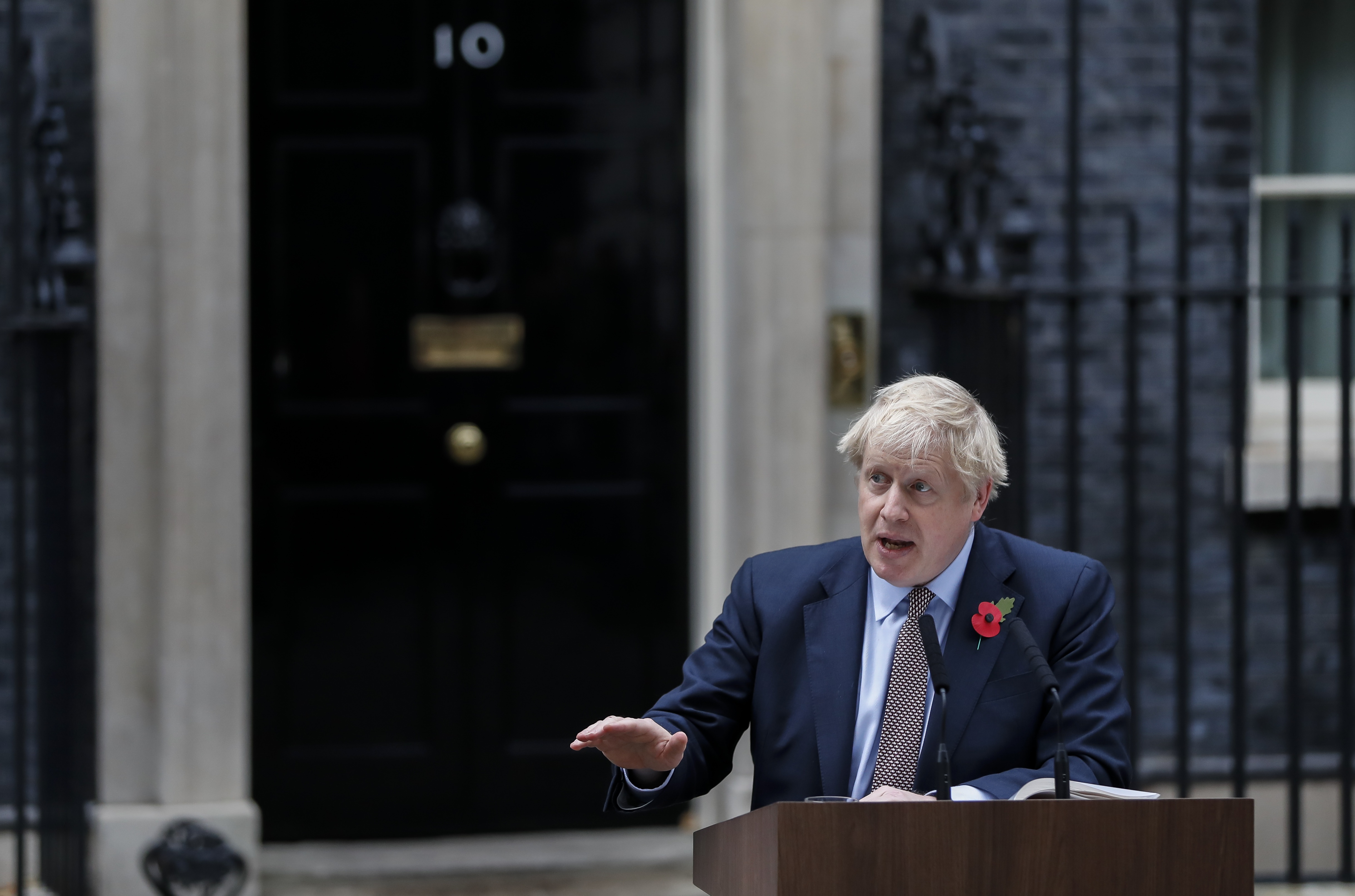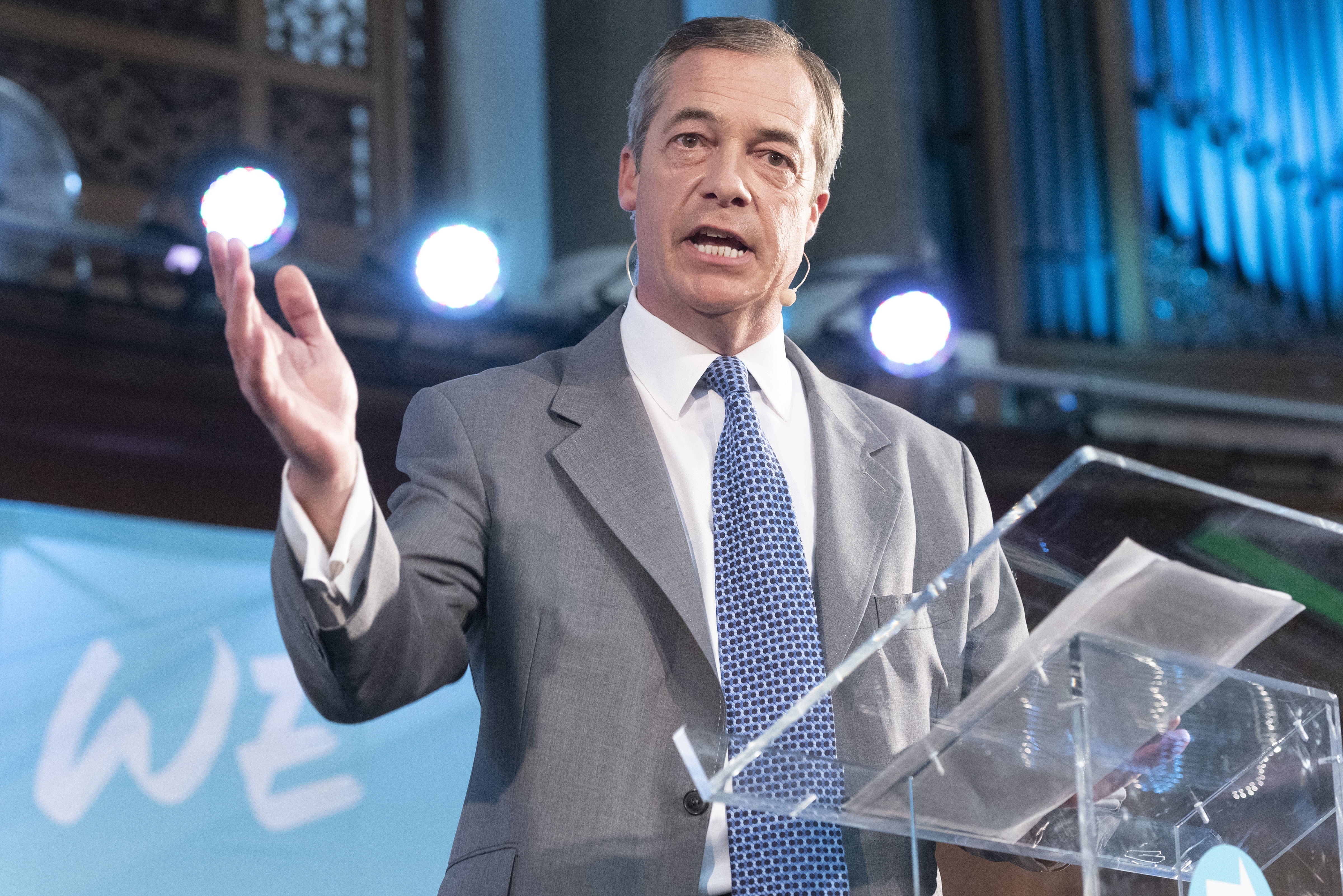Brexit Party throws its weight behind Johnson's Tories
- By Heiko Khoo
 0 Comment(s)
0 Comment(s) Print
Print E-mail China.org.cn, November 15, 2019
E-mail China.org.cn, November 15, 2019

When Boris Johnson was elected to lead the Conservative (Tory) Party, it was still reeling from a devastating defeat in the EU elections in May, when the newly created Brexit Party led by Nigel Farage took over 30% of the vote and the Tories got just 9%.
Farage was at the pinnacle of his influence and the Tories seemed to be on the rocks.
Boris Johnson's first role as party leader and prime minister was to assume the militant mantle of the Brexit Party. He threatened to leave the EU come what may on Oct. 31, and organized a series of theatrical stunts. These were designed to turn the Brexit-supporting segment of the public against Johnson's parliamentary opponents.
Such do-or-die Brexit posturing revived Tory fortunes in the opinion polls and has paved the way for the coming General Election on Dec. 12. With the Conservatives consistently about 10% ahead of the opposition Labor Party in the opinion polls, everything seemed set for a big Tory victory.
One factor that might have undermined this perspective, however, was the threat from the Brexit Party. Nigel Farage declared that Johnson's deal with the EU was not what the "leave" segment had voted for, because Britain would still be restricted by its commitments to the EU, limiting its ability to negotiate free trade deals with others, such as the U.S.
For many traditional Tories, Farage is seen as too right wing. So, Johnson could not openly make a deal with him without alienating his core constituency, many of whom supported remaining in the EU, or favored a continued close alignment after Brexit.
Johnson worried that, if the Brexit Party fielded candidates in 600 constituencies as it originally planned, this would split the Leave vote. Behind the scenes a deal was struck between Farage and Johnson. On Monday, Nov. 11, the former suddenly announced his party would not stand against any incumbent Tory MPs.
Instead, its campaign will target Labor voters in leave-supporting working class communities, believing voters in such traditional Labor strongholds, particularly in economically struggling areas such as the Midlands and the North of England, are more likely to vote for the Brexit Party than the Tories.
Farage claims that he wanted to form a "Leave alliance" including MPs from the Labor Party, the Tories and others who want out of Europe as soon as possible. But then, Boris Johnson released a video on Twitter, in which he said if he wins a parliamentary majority, he will conclude a free-trade deal with the EU by the end of 2020, and pave the way for a free-trade deal with the U.S.

Farage claims this convinced him to make peace with the Tories, and to campaign against the Labor Party and remain-supporting Liberal Democrats. The logic of this argument is rather threadbare, because Johnson's deal with the EU was only agreed in parliament with the backing of 19 Labor MPs from strong Leave voting areas. Yet, the Brexit Party will still fight against them.
And conversely, the Brexit Party will back remain-supporting Tory MPs who opposed Johnson's withdrawal agreement, and who scuppered its passage through parliament. In other words, Farage's "Leave alliance" is an anti-Labor alliance.
Naturally, Farage was worried about how his support base would respond to such machinations. Certainly, the Brexit Party's social media pages are full of Brexiteers calling out Farage for "betrayal" and "treachery."
The Brexit party stormed to success at the EU elections by demanding a no-deal Brexit based on WTO rules, and by promising to destroy the traditional political system. Now, the Brexit Party is languishing in the polls and Brexiteers are enraged, but they no longer have a voice.
The whole of Boris Johnson's strategy has been to make the election into a Brexit election. Labor wants to shift the debate away from Brexit and focus on public services and social justice issues.
This seems to be having some success with potential voters, so that, if this continues, the coming election may produce another dramatic upset to British politics.
Heiko Khoo is a columnist with China.org.cn. For more information please visit:
http://china.org.cn/opinion/heikokhoo.htm
Opinion articles reflect the views of their authors, not necessarily those of China.org.cn.
If you would like to contribute, please contact us at opinion@china.org.cn.






Go to Forum >>0 Comment(s)